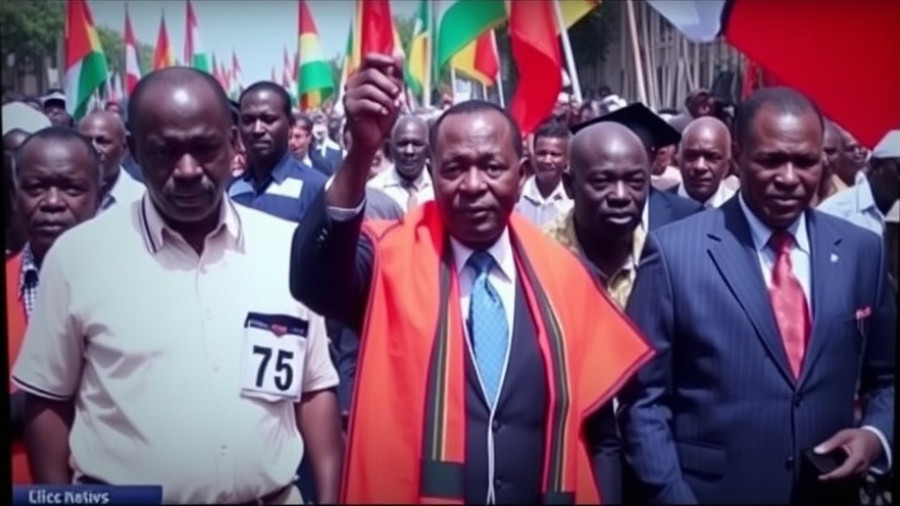
Raila Odinga's Last March: A Turning Point for Kenya's Democracy?
As Kenya has recently witnessed another wave of protests led by opposition leader Raila Odinga, the political landscape is fraught with tension and uncertainty. These demonstrations, underscored by rising living costs and perceived electoral injustices, signal more than just civil unrest; they hold potential implications for the African nation's governance and its foreign relations.
Historical Context: Protests and the Quest for Justice
The roots of these protests can be traced back to the controversial August 2022 elections, where Odinga’s Azimio la Umoja coalition challenged the results that declared William Ruto as the president. The Supreme Court's dismissal of their petitions sparked widespread discontent, fueling Odinga’s calls for nationwide protests to address issues of governance, economic hardship, and rights violations by the authorities.
Similar past protests have revealed the fragility of democratic processes in Kenya, which recent reports attribute to police brutality resulting in multiple fatalities and injuries among civilians, as detailed by organizations such as Amnesty International and Human Rights Watch.
Significance of Protests in Kenya's Political Landscape
The ongoing unrest reflects broader regional trends regarding governance and the right to protest in African countries. Activists argue that these protests are vital for democratic accountability within Kenya, as the government grapples with pressing socioeconomic issues exacerbated by global inflationary pressures.
For business leaders observing Kenya, these developments present critical insights into the geopolitical and economic stability of East Africa, with the potential to influence trade relations and foreign investment. Policymakers may need to reassess how these protests affect Kenya's negotiations with international partners, particularly in light of Ruto's recent talks with local and international stakeholders.
Implications for the African Economy and Global Relations
As civil unrest continues to pose challenges to governance stability, Kenya's economy faces potential repercussions. Investors often evaluate political risk as a crucial factor influencing their decisions. Consequently, ongoing protests can deter foreign investment, affect exchange rates, and exacerbate relations with international organizations like the IMF.
In the larger context, Kenya serves as a pivotal player in the Horn of Africa, with its governance model influencing neighboring countries. Odinga's assertion of power through protests may inspire similar movements elsewhere, shaping the political landscape of the entire region.
Call to Action: Engage in the Ongoing Discussion
As stakeholders closely monitor the situation in Kenya, it's imperative for community leaders, policymakers, and investors to engage actively in dialogues addressing the underlying causes of unrest. Shared accountability and proactive measures could pave the way for a more stable future.
Continued advocacy for human rights and transparent governance will not only contribute to healing and reform within Kenya but also strengthen its standing in the global community. It challenges all Africans to reflect on the implications of these protests beyond national borders.
 Add Row
Add Row  Add
Add 


Write A Comment